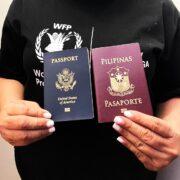The demand for domestic tourism soared in 2021 amid the pandemic, this is according to the data from the Department of Tourism (DOT).
The DOT and the Philippine Statistics Authority (PSA) bared encouraging industry figures in the 2021 Philippine Tourism Satellite Accounts (PTSA) and Tourism Statistics Online Dissemination forum held Tuesday (June 28).
According to the PTSA report, domestic tourism recorded a surge tallying 37,279,282 trips in 2021, a 38.16% growth compared to the 26,982,233 trips in 2020.
The National Capital Region (1,973,851), followed by CALABARZON (1,953,419), and Central Luzon (1,905,758) were the top overnight destinations for local tourists last year.
“The DOT attributes the resurgence of domestic tourism to the collaborative efforts of the national and local government units to standardize health and safety protocols, reinforced by the active participation of tourism stakeholders from the private sector. This, and the Department’s aggressive campaign on domestic tourism carried out with our regional offices, and with the help of local tourism offices across the country, restored Filipinos’ confidence to travel,” explained DOT Branding and Marketing Communications Assistant Secretary Howard Lance Uyking.
To recall, the DOT and the Tourism Promotions Board (TPB) Philippines spearheaded the “It’s More Fun With You” campaign to encourage Filipinos to travel during the recovery stages of the pandemic. The campaign was heavy on digital promotions, featuring virtual tours, in-depth websites, co-branding initiatives with the private sector, and generating awareness in new platforms.
Meanwhile, based on the same report, tourism industries employed about 4.9 million individuals in 2021, 4.6 percent higher than the 4.7 million employed in 2020. Tourism contributed 11.1 percent to the total employment of the country.
During the forum, the DOT noted the decline in foreign visitor arrivals as Philippine borders remain closed last year. The country recorded a total of 163,879 visitors from January to December 2021, a decline of 88.95% from 2020 arrivals of 1,482,535.
USA dominated the top visitor markets of the country with 39,326 arrivals. Japan, which ranked fourth in 2020, claimed the second spot with 15,024 arrivals. China followed in third place with 9,674 arrivals. An opportunity market before, India (7,202) rose to fourth place with Canada (6,781) at the fifth spot while Korea, the country’s top source market for many years, fell to 6th place with 6,456 arrivals.
Turkey and the United Kingdom ranked 7th and 8th respectively, with each contributing more than 4,000 arrivals. Completing the top 10 markets are Middle East countries United Arab Emirates and Saudi Arabia with more than 2,000 arrivals each.
“PTSA reports have been a critical tool in helping the DOT develop the tourism sector as a significant socio-economic activity, generate foreign exchange, employment, and information dissemination on the importance and benefit of the tourism sector for both private and public sectors,” DOT OIC-Secretary Edwin Enrile said during his opening remarks at the forum.
“Armed with this data and information, the DOT can further improve and refine its current plans and programs, learn from its weaknesses, and pinpoint where our strengths and opportunities lie amidst the pandemic,” OIC-Secretary Enrile added.
Manila, as the country’s main gateway through the Ninoy Aquino International Airport, maintained the lion’s share of the total air arrivals with 142,448 or 86.92%. This is followed by the Mactan-Cebu International Airport which received a total of 11,119 visitors (6.78%), and the Clark International Airport with 9,964 (6.08%) arrivals.
Visitor spending or tourist receipts generated in 2021 recorded an estimated PhP 8.49 Billion, a decrease of 89.67% from the visitor receipts of PhP 82.24 Billion recorded in the same period of the previous year.
In average, a tourist apparently spent around PhP 7,000 a day in the Philippines and stayed for an average of 10.58 nights.
“We continue to do this (online dissemination forum) because we recognize the considerable contribution of tourism to the Philippine economy and its role and importance in creating opportunities and in generating employment for our kababayans”, National Statistician Claire Dennis Mapa cited in his keynote message.
Tourists mostly visited the Philippines for holiday/leisure with a total of 15.99% purpose of visit followed by business trips (8.11%) and incentive travel (2.66%).
The average age of tourists that comes to the Philippines is 39 years old, majority of whom are male travelers registering at about 59.25%, significantly edging female travelers at 40.49%.
Meanwhile, according to the Survey on occupancy rates of Hotels in 2021, Metro Manila recorded an average hotel occupancy rate of 60.97%.
In the forum hosted by Dr. Maria Cherry Lyn Rodolfo, DOT OIC-Director Warner Andrada presented the 2021 Tourism Industry Performance, while Assistant National Statistician Vivian Ilarina talked about the 2021 PTSA and Dr. Carlos Dela Reyna Jr. of the Bureau of Quarantine (BoQ) discussed the relevance of the One Health Pass (OHP). Meanwhile, DOT Undersecretary Woodrow Maquiling Jr. delivered the closing remarks at the forum.
The Tourism Satellite Account is a standard statistical framework and the main tool for the economic measurement of tourism, developed by the United Nations World Tourism Organization (UNWTO), Organisation for Economic Co-operation and Development (OECD), among other statistical organizations, which allows the measurement of the contribution of tourism industries to Philippine economy.






